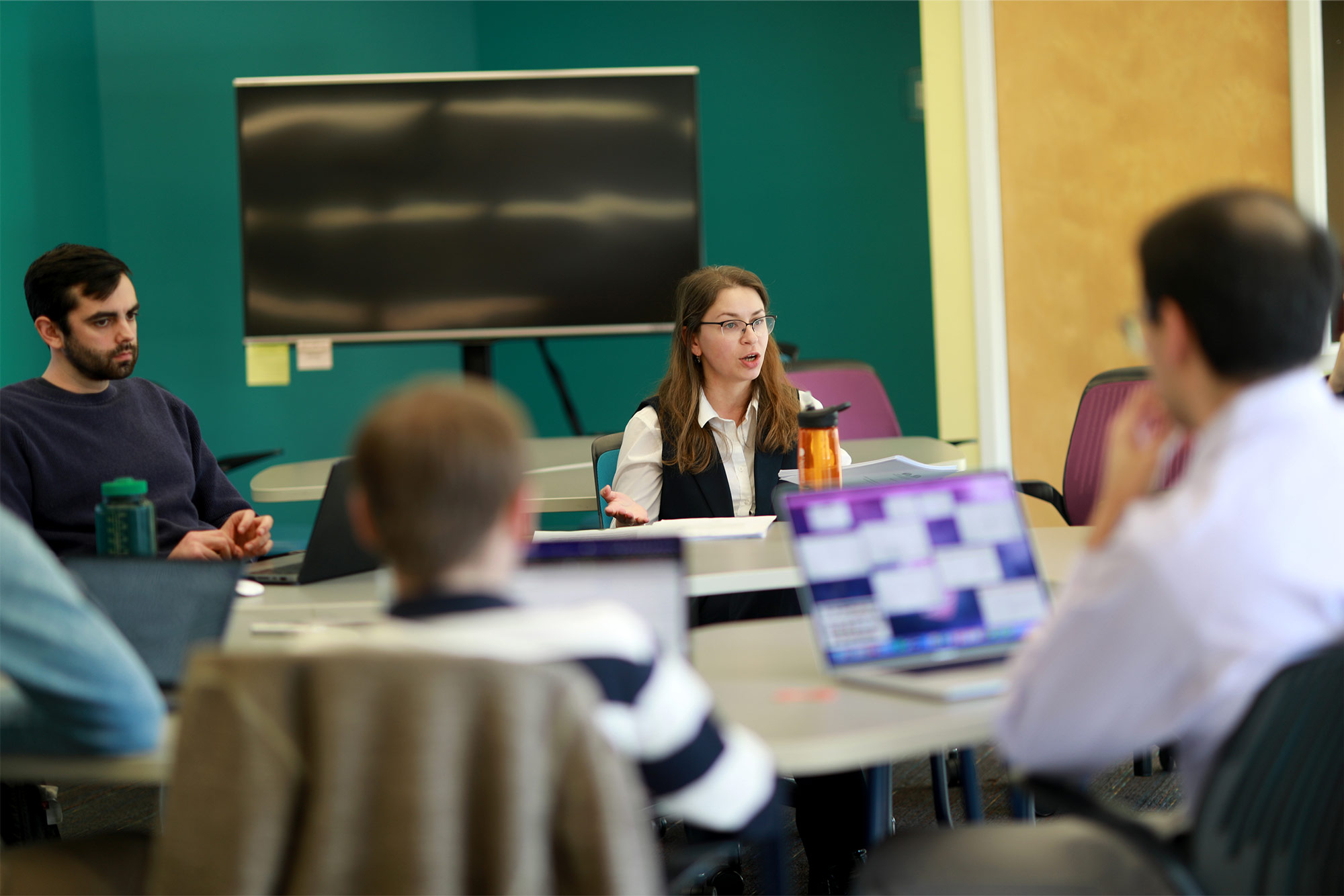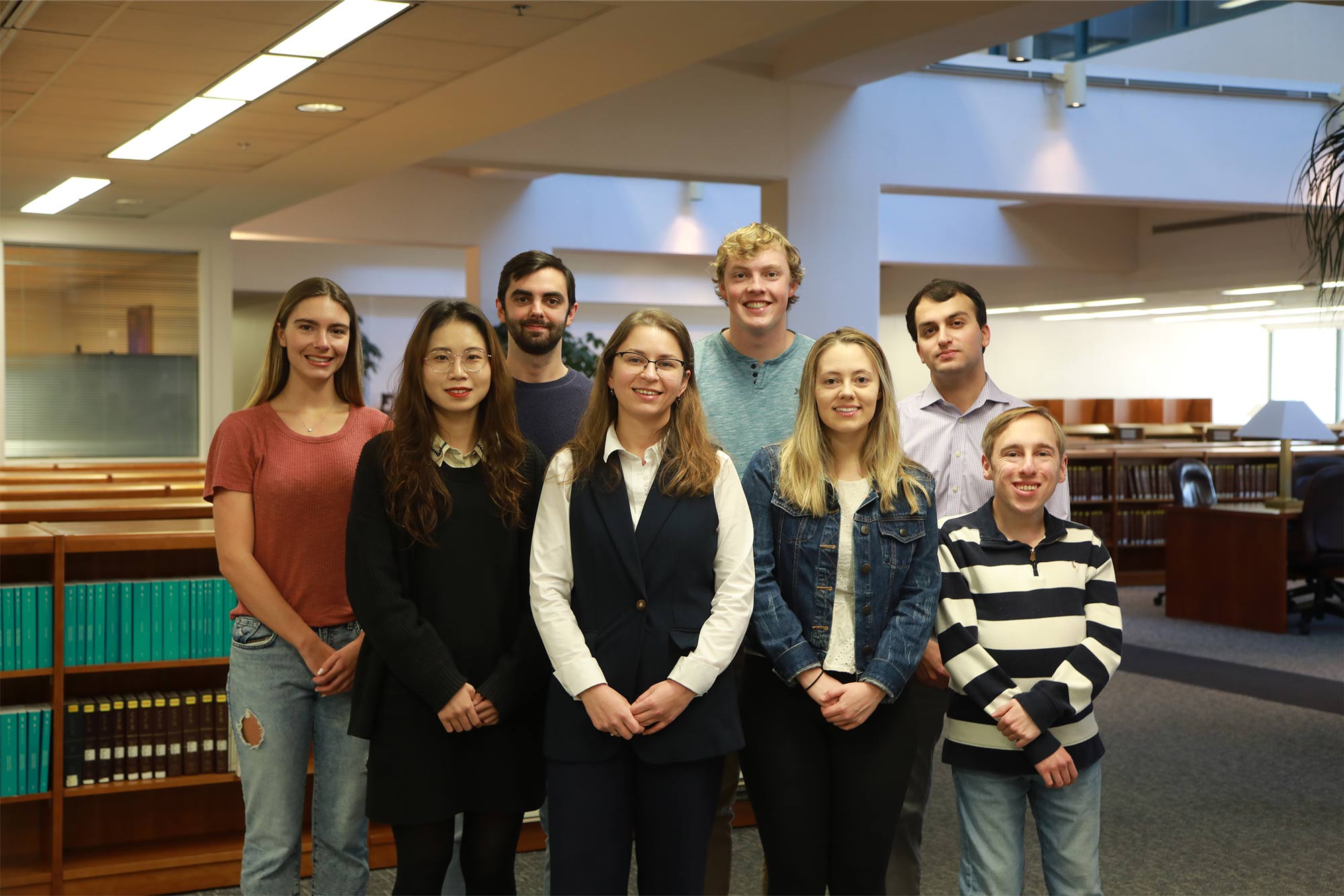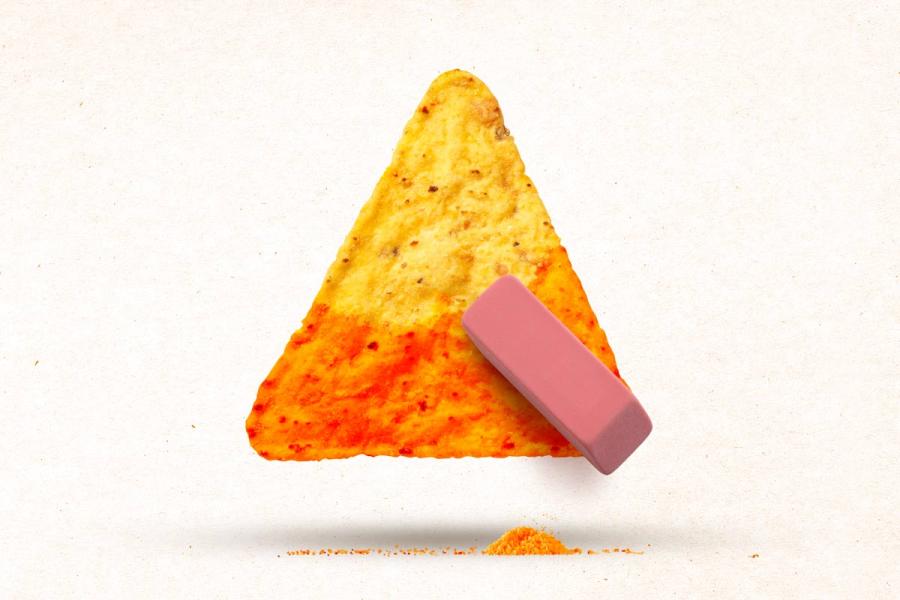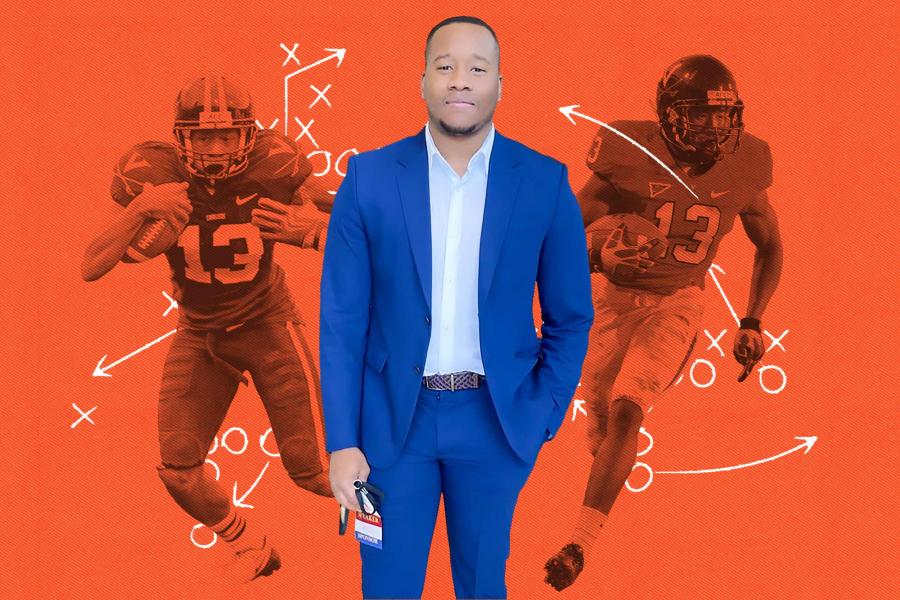“I suddenly remembered I’m a human rights lawyer,” Protsenko said with a smile.
Protsenko had moved to the United States in 2019 as a Fulbright Scholar studying international human rights law while earning her Master of Laws at the University of Indiana’s McKinney School of Law. She has been in Charlottesville since 2020, archiving oral histories about the Soviet use of punitive psychiatry to suppress dissent as part of a postdoctoral research fellowship with UVA Law professor Richard Bonnie.
But before arriving in the United States, Protsenko represented Ukrainian victims of human rights violations committed by Russian forces and pro-Russian militants during the 2014 invasion of eastern Ukraine and the annexation of Crimea.
“One of my first clients was the family of a girl I used to play with growing up; she lived next door to my grandmother,” Protsenko said. The girl, now 20, perished when the civilian bus she was riding in the Donetsk region was fired on as it passed through the Volnovakha checkpoint.
“Everyone on her side of the bus died,” Protsenko said. “She was the youngest person on that bus.”
Protsenko filed the family’s lawsuit against the Russian government in the European Court of Human Rights, which had jurisdiction over Russia since it joined the Council of Europe and signed the European Convention on Human Rights in 1998.
That case, filed in 2015, has yet to be communicated to Russia, which was kicked out of the Council of Europe last March after invading Ukraine. The court retains jurisdiction over cases arising up to six months after Russia left the council.
An Opportunity at UVA
Once Protsenko pulled herself away from the invasion news and located her family – which took a month – she reached out to professor Camilo Sánchez, director of UVA Law’s International Human Rights Clinic. The school hired her as a staff attorney, allowing her both to work on behalf of Ukrainian victims and to offer students a once-in-a-lifetime work experience.
Protsenko filed her first lawsuits related to the current war in June 2022 – one on behalf of the family of a woman who was shot while riding a bike in Bucha, and another on behalf of a 9-year-old child who survived being shot in the neck at a Russian checkpoint.
Currently, her lawsuits are not part of the International Human Rights Clinic’s curriculum, but that hasn’t stopped UVA Law students from flocking to help further the cases.
Upon recognizing the potential of Protsenko's litigation to serve as a valuable teaching tool for international law, Sánchez put out a call for eight pro bono volunteers to help her work out two preliminary issues that could block the victims from having their day in the European court: exhaustion of domestic remedies in Russia and its jurisdiction over the human rights breaches in Ukraine.
“Lena is a skilled and committed attorney who is actively engaged with one of the most urgent legal and humanitarian issues facing our world today,” Sánchez said. “The chance for students to work alongside her and gain insight from the cases is invaluable.”
Twenty-five students responded, which was more than Protsenko could manage at this point in her litigation efforts. Eight joined her team.
As a legal matter, two European court rulings live on Protsenko’s desk and in her mind.
In the controversial interstate case of Georgia v. Russia (II), the European Court of Human Rights held that it had no jurisdiction over events that transpired during the Five-Day War that occurred when Russia invaded Georgia in August 2008. The court said that the so-called “context of chaos” during active hostilities meant that neither state had control over the affected area and therefore neither could be held liable for the civilian killings committed during that period.
“This decision can be very detrimental to our case, because if neither party has jurisdiction in that context, then who is accountable when a country’s been invaded?” Protsenko said. “For many people, the European Court is the last remedy they can access because there is no justice they can find domestically.”
However, Protsenko was quick to point out that the facts are different in her cases, which is where the second document on her desk comes in. Issued in January, the European Court’s decision in Ukraine and the Netherlands v. Russia concerns Russia’s responsibility for the 2014 downing of Malaysia Airlines Flight 17 over Eastern Ukraine. The court concluded that, because Russia effectively controlled the self-proclaimed separatist “republics” and the Buk surface-to-air missile was launched outside of the “context of chaos,” the European Court has jurisdiction.
“The court said it can hear the case because the plaintiffs would find no effective remedy in the Russian justice system,” Protsenko said.






